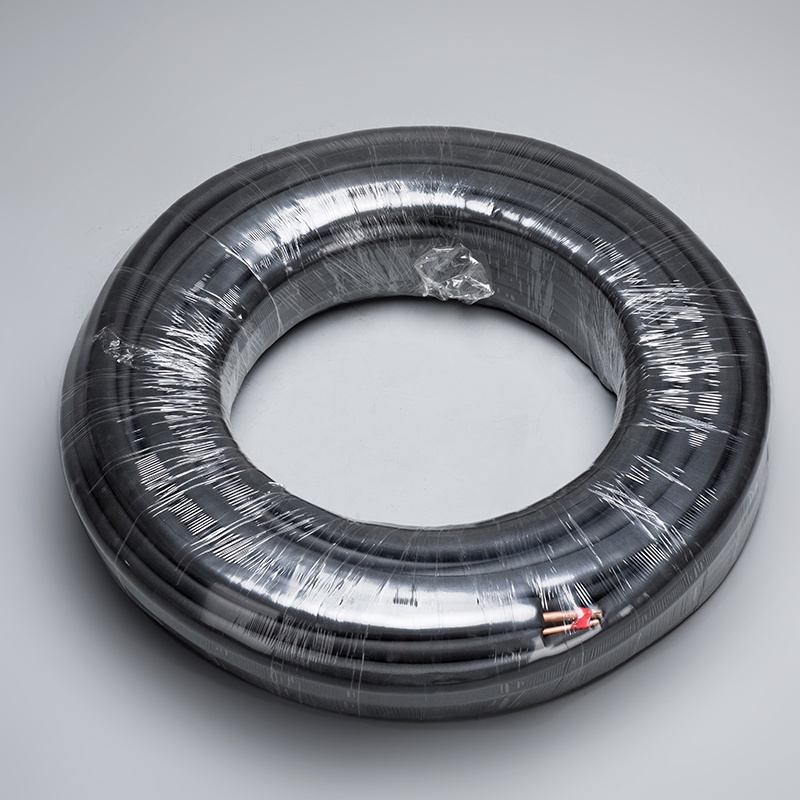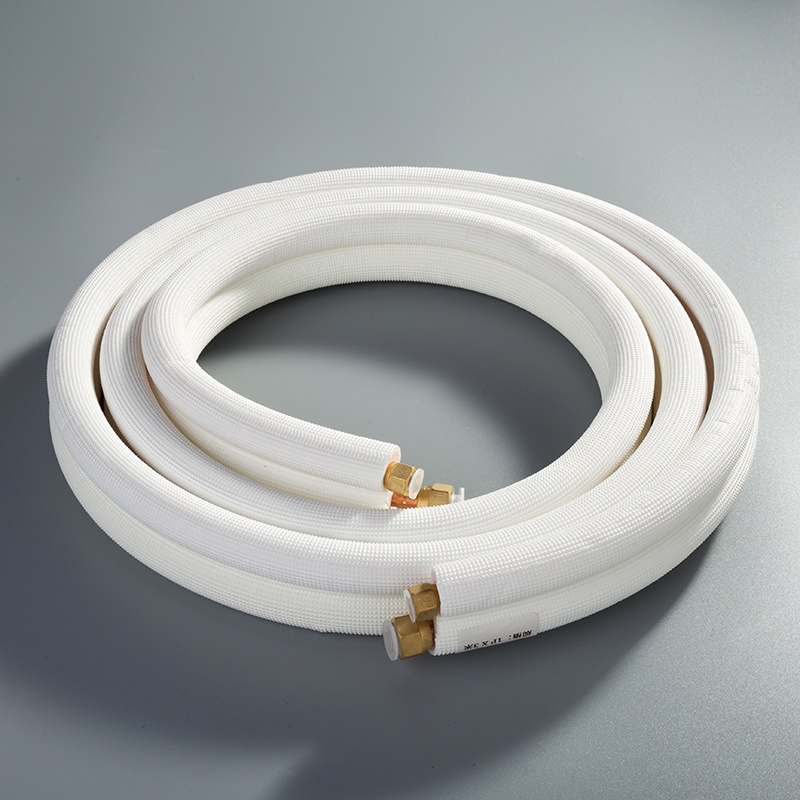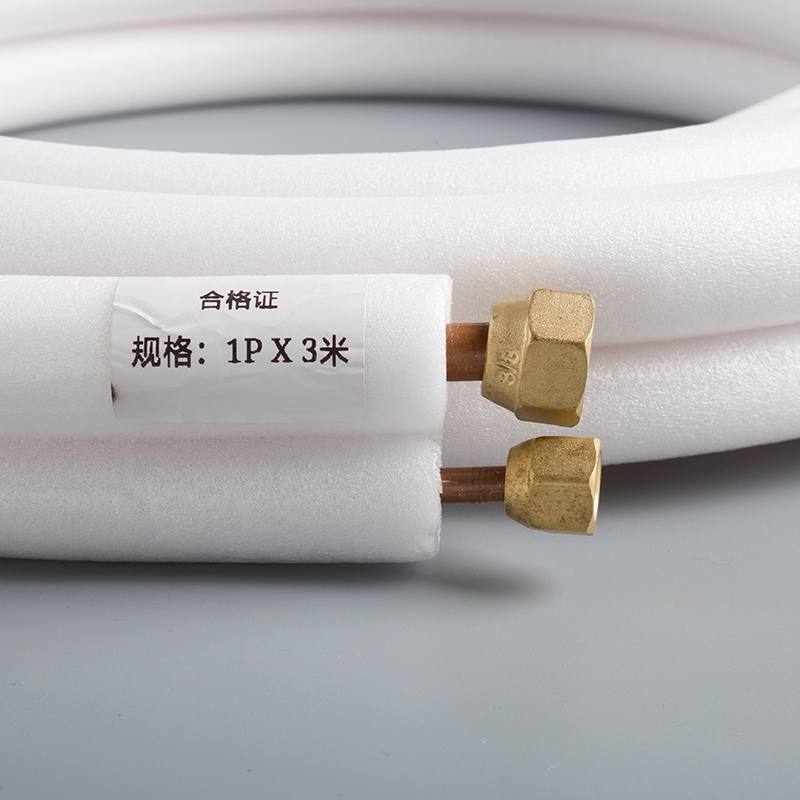Pros and Cons of Insulating Copper Pipes in Home AC Units

Insulation plays a crucial role in enhancing the efficiency of home AC units. Copper pipes are integral components within AC systems, responsible for transporting refrigerants and water. This blog aims to write a 'Pros and Cons' blog post on 'Pros and cons of insulating copper pipes in residential AC units,' shedding light on the impact it has on energy consumption and system performance.
Understanding Copper Pipes in Home AC Units
Characteristics of Copper Pipes
Durability and Longevity
Copper pipes exhibit exceptional durability and longevity, making them a reliable choice for air conditioning systems. Their robust nature ensures prolonged usage without compromising performance. The longevity of copper pipes minimizes the need for frequent replacements, contributing to cost-efficiency in the long run.
Conductivity and Efficiency
The inherent conductivity of copper pipes enhances the efficiency of air conditioning units by facilitating the seamless transfer of heat. This property allows for quick cooling or heating processes, optimizing the overall performance of the system. Copper's high thermal conductivity ensures that temperature adjustments occur promptly, promoting energy efficiency within AC units.
Pros of Insulating Copper Pipes

Energy Efficiency
Insulating copper pipes in residential AC units offers various advantages, primarily enhancing energy efficiency. By reducing heat loss through proper insulation, homeowners can significantly lower their energy bills over time.
Reduced Heat Loss
Insulated copper pipes effectively minimize heat loss during the transportation of refrigerants and water within the AC system. This reduction in heat loss ensures that the cooling or heating process remains efficient, ultimately leading to cost savings for homeowners.
Lower Energy Bills
With insulated copper pipes, the overall energy consumption of the AC unit decreases due to improved thermal regulation. This results in reduced energy bills for homeowners, making it a sustainable and economical choice in the long run.
Prevention of Condensation
Insulation plays a crucial role in preventing condensation issues that may arise within copper pipes in home AC units. By avoiding condensation, homeowners can steer clear of potential water damage and maintain the optimal efficiency of their AC systems.
Avoiding Water Damage
Properly insulated copper pipes eliminate the risk of condensation buildup, which can lead to water damage within the AC unit and surrounding areas. This preventive measure safeguards against costly repairs and ensures the longevity of the system.
Maintaining System Efficiency
By preventing condensation through insulation, copper pipes maintain their efficiency by operating at peak performance levels. This not only prolongs the lifespan of the AC unit but also ensures consistent cooling or heating throughout the home.
Noise Reduction
In addition to improving energy efficiency and preventing condensation, insulating copper pipes contributes to noise reduction within home AC units. This reduction in noise levels enhances comfort and minimizes disturbances caused by operational vibrations.
Minimizing Vibrations
Insulated copper pipes dampen vibrations generated during the operation of an AC unit, resulting in a quieter environment within homes. The reduction in vibrations also helps maintain structural integrity by minimizing unnecessary movement.
Quieter Operation
With properly insulated copper pipes, homeowners can enjoy a quieter operation of their AC systems, creating a more peaceful indoor environment. The noise reduction adds to overall comfort and enhances the quality of living spaces.
Cons of Insulating Copper Pipes
Initial Cost
Insulating copper pipes in residential AC units involves initial expenses that homeowners should consider. These costs encompass both material expenses and installation costs, impacting the overall budget for enhancing the efficiency of the air conditioning system.
Material Expenses
When insulating copper pipes, homeowners need to invest in suitable materials to ensure effective insulation. The selection of high-quality insulation materials is crucial for long-term performance and energy savings within the AC unit.
Installation Costs
Apart from material expenses, installation costs are a significant factor to evaluate when considering insulating copper pipes. Professional installation services may incur additional charges, but they ensure proper insulation application and optimal performance of the AC system.
Maintenance Challenges
While insulating copper pipes offers numerous benefits, it also presents maintenance challenges that homeowners should be aware of. These challenges include inspection difficulties and the potential for mold growth, requiring proactive measures to maintain the integrity of the insulation.
Inspection Difficulties
After insulating copper pipes, conducting regular inspections becomes essential to monitor the condition of the insulation. Homeowners may face challenges in accessing certain areas for inspection, necessitating strategic planning to ensure thorough maintenance practices.
Potential for Mold Growth
Insulation can create a conducive environment for mold growth if not properly maintained. The enclosed space around insulated copper pipes may trap moisture, leading to mold formation over time. Preventive measures such as adequate ventilation are crucial in mitigating this risk effectively.
Potential Over-Insulation
Over-insulation of copper pipes can have adverse effects on their functionality and overall system performance. Homeowners should be cautious about excessive insulation as it can impede heat dissipation and disrupt the efficient operation of the AC unit.
Reduced Heat Dissipation
Excessive insulation on copper pipes can hinder heat dissipation processes, causing temperature imbalances within the AC system. This reduced heat dissipation may lead to inefficiencies in cooling or heating functions, affecting overall comfort levels in residential spaces.
Impact on System Performance
The impact of over-insulation extends to compromised system performance within home AC units. When copper pipes are excessively insulated, it can strain the functionality of the entire system, resulting in decreased efficiency and potential malfunctions over time.
Installation Considerations

Choosing the Right Insulation Material
Insulating copper pipes in residential AC units involves selecting the appropriate insulation material to ensure optimal performance. Homeowners can consider various types of insulation based on their specific needs and preferences.
Types of Insulation
Foam Insulation: Offers excellent thermal properties and moisture resistance, ideal for maintaining the temperature of copper pipes effectively.
Rubber Insulation: Provides flexibility and durability, ensuring long-term protection against heat loss and condensation issues.
Fiberglass Insulation: Known for its affordability and ease of installation, suitable for enhancing energy efficiency in AC systems.
Factors to Consider
R-Value: Evaluate the insulation's R-value to determine its thermal resistance capabilities and effectiveness in reducing heat transfer.
Moisture Resistance: Choose insulation materials with high moisture resistance to prevent condensation buildup and potential water damage.
Durability: Prioritize durable insulation that can withstand environmental factors and maintain its integrity over time.
Professional vs. DIY Installation
When considering insulating copper pipes in home AC units, homeowners must weigh the advantages and disadvantages of professional versus DIY installation approaches.
Pros and Cons of Each Approach
Professional Installation:
Pros:
Ensures precise application of insulation materials for maximum efficiency.
Minimizes the risk of errors or improper installation that could affect system performance.
Cons:
Involves additional costs for labor and professional services.
Scheduling appointments with professionals may lead to longer wait times for installation.
DIY Installation:
Pros:
Allows homeowners to customize the insulation process according to their preferences.
Provides a cost-effective solution for those with DIY skills and experience.
Cons:
Requires careful attention to detail to ensure proper insulation without gaps or overlaps.
May pose challenges for individuals unfamiliar with insulation techniques or safety precautions.
Safety and Efficiency Concerns
Regardless of the chosen installation approach, safety measures should be prioritized during the insulating process to prevent accidents or hazards.
Properly insulated copper pipes contribute to enhanced energy efficiency, reducing heat loss and promoting optimal performance within home AC units.
Alternatives to Insulating Copper Pipes
Using Pre-Insulated Pipes
Benefits and Drawbacks
Insulated pipes offer significant advantages over non-insulated counterparts. They play a crucial role in reducing heat loss and gain, protecting against freezing, burst pipes, and maintaining desired temperatures effectively. Insulated copper pipes lead to long-term savings, an extended lifespan, enhanced comfort, and improved thermal efficiency within the plumbing system.
Other Pipe Materials
Comparison with Copper
When comparing insulated copper pipes to non-insulated ones, the benefits are evident. Insulation helps prevent condensation issues, enhances energy efficiency, and provides protection against moisture-related problems in air conditioning systems.
Suitability for AC Systems
Considering the suitability of other pipe materials for AC systems is essential. Each material has its unique characteristics that impact performance and longevity. Proper evaluation of alternative pipe materials ensures optimal functionality and efficiency in residential AC units.
Insulating copper pipes is a fundamental step in enhancing energy efficiency and safeguarding your plumbing system. By adding insulation to these pipes, you can notably reduce heat loss, prevent freezing, and boost overall performance. The benefits extend beyond mere energy bill savings; it ensures that your water maintains the desired temperature consistently. With expert guidance from professionals like Neo Thermal Insulation and Hayes Plumbing, your investment guarantees long-term savings and peace of mind.
Testimonials:
Baoyuan
"Insulate copper pipes is a crucial step in enhancing energy efficiency and protecting your plumbing system."
Anonymous
"To insulate copper pipes is to invest in long-term savings. By reducing heat loss through proper insulation, homeowners can see a significant decrease in energy consumption."
By limiting heat transfer through proper insulation, you maintain water temperature effectively, improving overall comfort at home. The insulation acts as a barrier against moisture penetration, ensuring enhanced home efficiency and reduced energy usage. Properly insulated pipes not only save money but also create a more comfortable living environment for you and your family.
See Also
Benefits of Opting for Copper Pipes in Air Conditioning
Enhance AC Efficiency with Copper Pipes Insulation Tips
The Importance of Pure Copper Pipes in AC Efficiency


